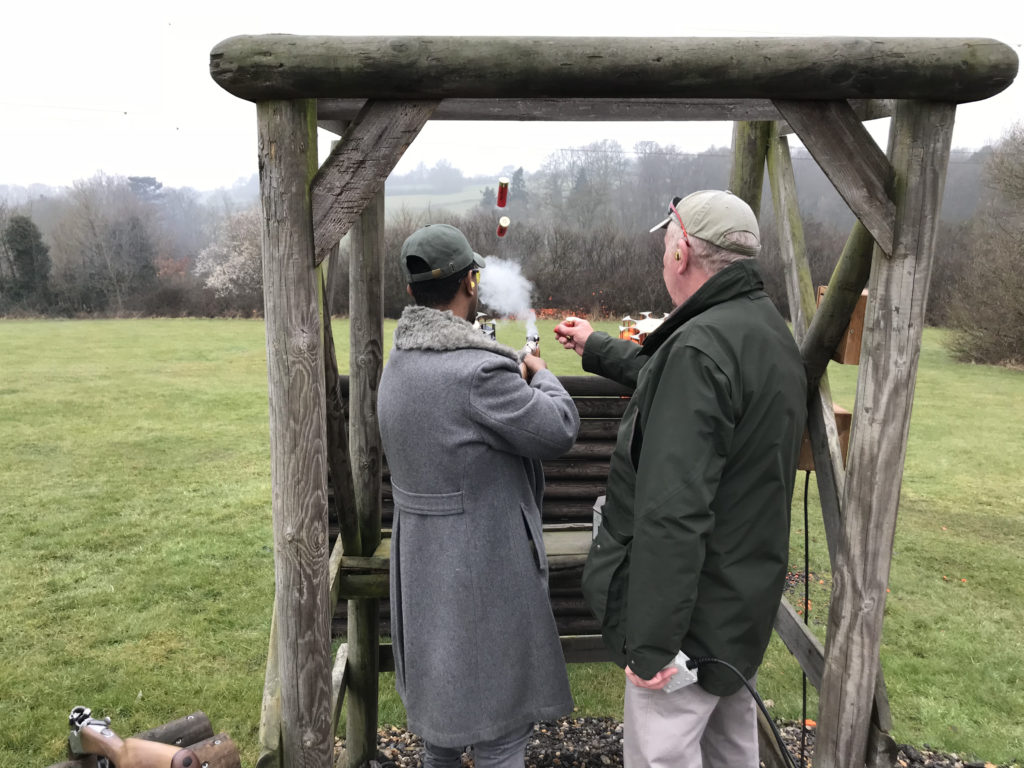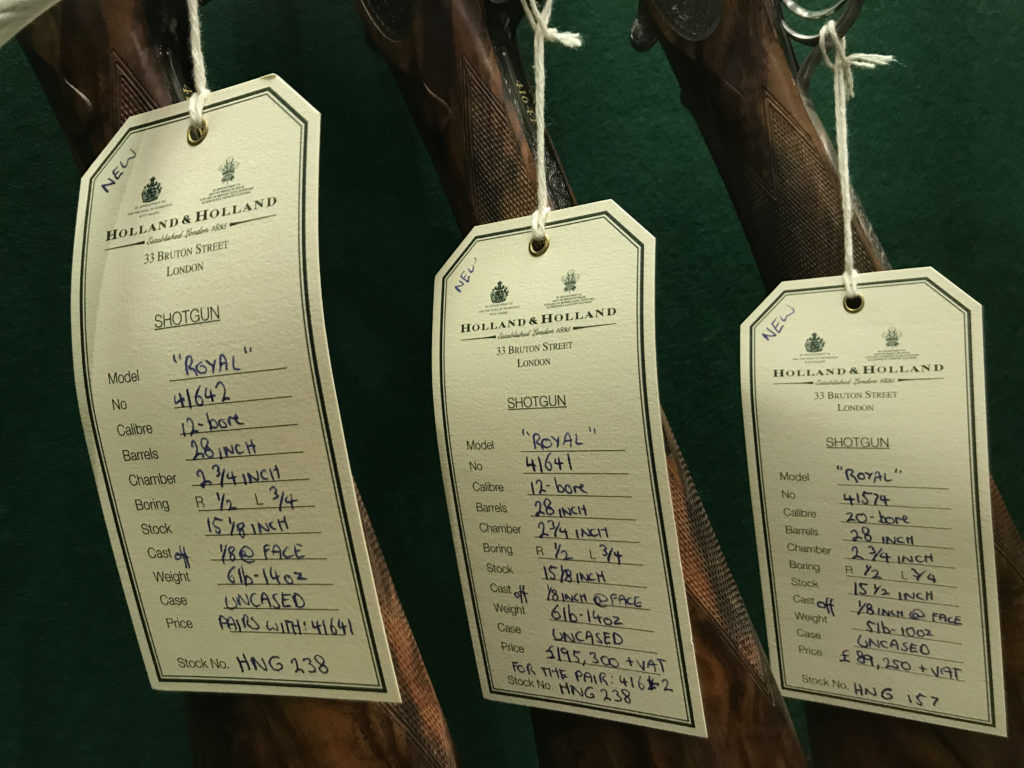I don’t think my father was particularly good at cards but my mother was a fearsome opponent on her day. She’d win at whist and only competed to win in bridge rather than gamble on poker. I mean win as in nearly always win, card counting presumably the sub-liminal talent that enabled her triumphs.
I’m not much good at cards and awful at poker. Indeed I got put off poker in school when a one time event taught me a life lesson.
I was dealt three aces during an illicit boarding school game. We often played in our five-boy dormitory cell on Saturday nights. I say cell, not so much a place where monks contemplated as an over-packed holding room for miscreants. That night, three aces in hand, I discarded and drew another card, a fourth ace. I knew that the only thing that could beat me was a straight flush and it couldn’t be royal because I had all the aces. So I borrowed some more coins and bet and won. Out schoolboy pots weren’t big but winning could mean enough extra cash for four of five Mars bars or maybe ten cigarettes, if you didn’t continue to gamble and recycle the winnings.
The other four howled derisively that a poker of aces was impossible. The accusations of cheating and collusion with my lender were so bad that my dormitory arrangements in boarding school had to be changed a few weeks later. The primary suspicion was that I won because I’d spoken to my friend who lent me the money when I had three aces. I’d have bet big on the three but they thought he’d told me what he’d seen in the other hands.
The accusations were so toxic and persistent that I begged to be swapped from a room of five to a room of two. A classmate agreed the exchange and I went from Coventry to a different room on the the other side of the building, far from my accusers. It was our last year in school and I never forgave my accusers, no more than they ever trusted me ever again. All because my hand wasn’t impossible, it was simply improbable. My years in applied science and business have since informed me that improbable things happen all the time. Improbable as it sounds, my lender hadn’t seen the other hands. Fortunately for me, I lost all interest in that form of gambling overnight.
What is gambling? There was a Webley revolver that my father kept on the wall in our family home when I was growing up. A relic of the First World War, we used it to play Russian Roulette as kids. This was such a violation of everything we were taught about firearms that I’ve rarely spoken of it. The Webley was was a hideously heavy revolver with a very stiff trigger. We’d used ‘3 in 1’ oil to free the revolving cylinder and lighten the trigger. There were no cartridges so it was impossible to fire and besides we could see five of the six chambers at all times. Eleven or twelve years old, the word irresponsible wasn’t yet in our lexicon. We were adventurers, like our heroes in the Beano and Dandy comics. Then, when the troubles erupted again in Northern Ireland in the late 60s, my father took a pliers, clipped and filed the firing pin. He didn’t know this was after I’d died a few virtual deaths and before I risked a few more spins of the cylinder of death.
A disabled gun looks no different to the the deadly weapon it was made to be. Our house was broken into and although not much was stolen, the Webley revolver was taken. Doubtless the filed firing pin was a disappointment to the thief. Half a century later, the idea of a handgun as an art-like decoration on the wall seems preposterous. Let’s not overlook the disturbed behaviour of a couple of children faking Russian roulette. But we grew up in a culture that celebrated lives by the glories of their deaths. You should have heard some of the eulogies I heard at the many funerals I attended as a child. We played with weapons of war, replicas in plastic perhaps but our imaginations brought them to life as dispensers of death. As cowboys, we carried guns in holsters and waited for Indians to attack. As airforce pilots, we glued and painted Airfix military plane kits and fought our own Battles of Britain. We became Field Marshalls and army Generals for hours at time, deploying toy soldiers in flower beds where we took turns to stone the opposing lines in reenactments of the Great War in the rose-bed. There was a man nailed on a cross, blood streaming from his side displayed prominently at our, mandatory twice daily attendances at worship. The walls had tablets portraying his barbarous torture before execution. And it was with real rifles and shotguns that we learned to shoot teal, widgeon, snipe, pheasant, pigeon or deer as meats for the table.
This shooting for sport and food continued into my twenties, latterly culling and dressing deer for the freezers of the family restaurant. Then there came two incidents in short order. I suppose, in hindsight, that these were inevitable and we were lucky.
The first was a near miss while hunting deer. Two of us were out stalking for hours and had just separated to descend a steep sided, bracken covered, much puckered cliff top. I was to the right, in the heavier going terrain. He got ahead of me having found an easier path about 100 metres to my left. A close lying deer rose almost midway between us. Instinctively, he turned and fired. Our childhood games may have prepared him to react to the threat of enemies, tiredness dulled his awareness of the difference and blood lust may have done the rest. I sometimes hear the bullet again, just as I did when I heard it zing past my ear.
The other incident was the accidental killing of an owl. A shotgun incident on a downslope on a bitterly cold, wet and windy day. A pheasant flew out to my right, and I shot it as it headed off at about 100 km per hour in the wind. As it fell, another bird rose to my left and I hit it with the left choke barell. I knew as my finger flexed to pull the trigger, too late to stop, that it was a long eared owl. This was treeless terrain, perfect for pheasant, land I knew very well. The owl was improbable and the improbable owl was dead. Chastened, I decided that if I couldn’t tell an owl from a pheasant, I had no business with guns. The owl was my last pull of a trigger for almost thirty years. And even then, I only picked up a gun to shoot clays. Having tried clays three times in the last twenty years, I know that my need for varifocal lenses has permanently compromised my interest in clays.
What’s true of clays is true of billiards and table tennis and many other objects besides. Things aren’t always where (or how) I see them.



Leave a Reply